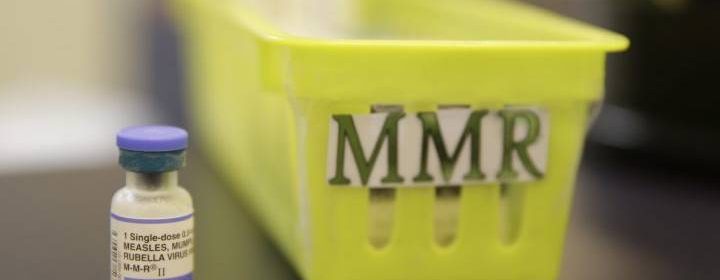Strong majority of Canadians support mandatory vaccinations for children entering school: Poll

Amid a recent measles outbreak in Vancouver, a new survey found 70 per cent of parents believe in mandatory vaccinations for children entering school.
The Angus Reid Institute study found an even higher number of adults, 83 per cent, say they would vaccinate their children without hesitation.
Twenty-four per cent say vaccinations should be a parent’s choice rather than mandatory.
More than nine in 10 Canadians say they believe vaccines are effective.
However, 29 per cent of respondents say the science on vaccinations is not quite clear. The study noted that skepticism was more prevalent among older respondents, with 36 per cent of those aged 55 or older having concerns.
Shachi Kurl, executive director of the Angus Reid Institute, said despite that skepticism, the message the results send is crystal clear.
“What we find is regardless of whether you have a child under the age of 12 in the home, or if you don’t, the idea that vaccines are effective [and] should be used…comes up very strongly,” Kurl said.
Globalnews.ca coverage of the measles outbreak
Kurl also said the results of the poll appear to show what she calls “a silent majority” pushing back against the vocal anti-vaccine message that has become popular on social media.
“We’ve now seen that it only takes a few cases and a few unvaccinated children or adults for things to get really out of hand very quickly,” she said.
There have been nine confirmed cases of measles in Vancouver this year, eight of which are associated with two francophone schools.
Vancouver Coastal Health (VCH) said on Tuesday that 33 students and a staff member have been ordered to stay away from school. VCH said the students are either not vaccinated or don’t have proof of vaccination.
Data available at the VCH website suggest many schools in the region have kindergarten measles vaccination rates well below levels need to create “herd immunity.”
Some people cannot be vaccinated – including infants under six months of age, people with certain underlying health conditions and those undergoing chemotherapy – meaning they must rely on high levels of immunity within their communities to prevent infection with the virus.
—With files from The Canadian Press
Source: Read Full Article

